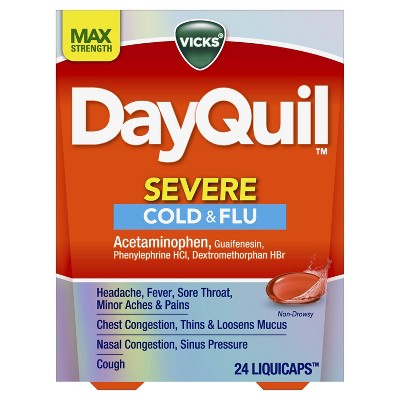Your Why does my baby spit up so much formula images are ready in this website. Why does my baby spit up so much formula are a topic that is being searched for and liked by netizens today. You can Download the Why does my baby spit up so much formula files here. Find and Download all free photos.
If you’re searching for why does my baby spit up so much formula images information connected with to the why does my baby spit up so much formula interest, you have visit the ideal site. Our site frequently gives you suggestions for refferencing the maximum quality video and image content, please kindly surf and locate more enlightening video content and graphics that match your interests.
Why Does My Baby Spit Up So Much Formula. This is because formula flows much faster from a bottle than human milk does from the breast. GER effects about 40 to 65 of babies ages one to four months and typically resolves around about one year of age. Start with 1 level teaspoon of rice cereal to each ounce of formula. When the stomach is full or a babys position suddenly changed after a feeding youd better have a cloth handy.
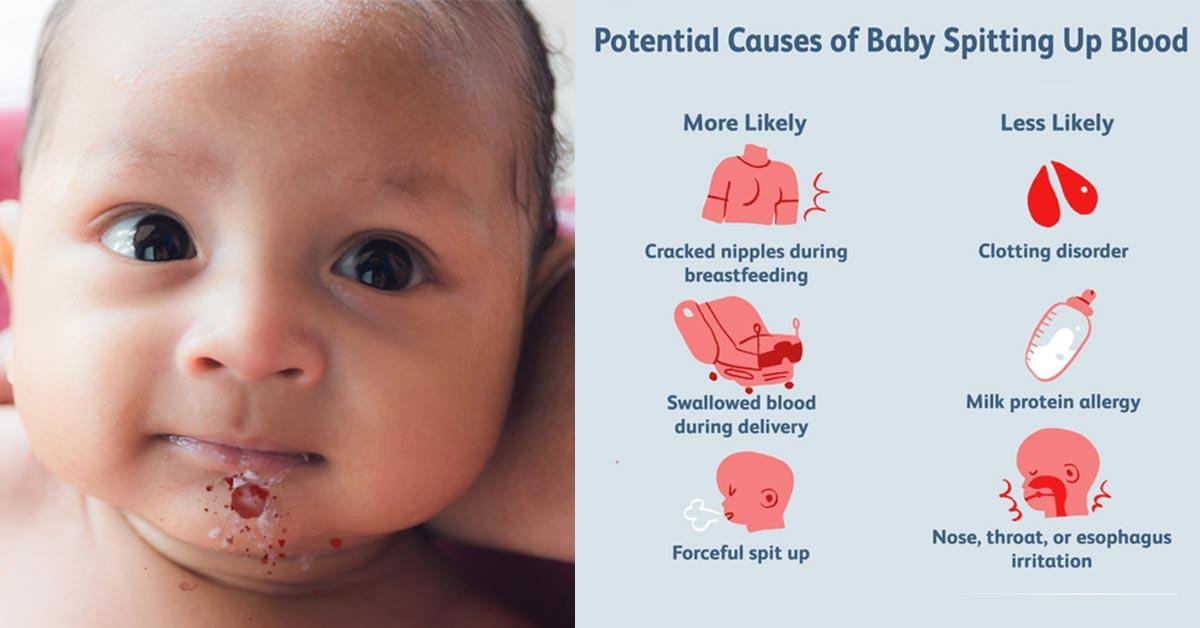 Baby Spitting Up Blood Is It Normal
Baby Spitting Up Blood Is It Normal
Too much milk during feedings can cause your baby to spit up or be fussy. Add Rice Cereal to Formula. Usually spit-up is simply part and parcel of their maturing digestive system. When the air comes back up as a burp so does the. Mix it with rice cereal. Its a lot easier to overeat when the baby doesnt have to work to get the milk.
This is because formula flows much faster from a bottle than human milk does from the breast.
Tetra ImagesBrand X PicturesGetty Images The Happy Spitter. Your baby may do. Some babies need to be burped after every feeding because they swallow lots of air as they gulp down milk. Its all about tummy size. Experts estimate that more than half of young infants spit up at least one or more times a day. The stomach contents can force the sphincter open and flood back up the esophagus.

Some babies need to be burped after every feeding because they swallow lots of air as they gulp down milk. When the air comes back up as a burp so does the. Its all about tummy size. Experts estimate that more than half of young infants spit up at least one or more times a day. The stomach contents can force the sphincter open and flood back up the esophagus.
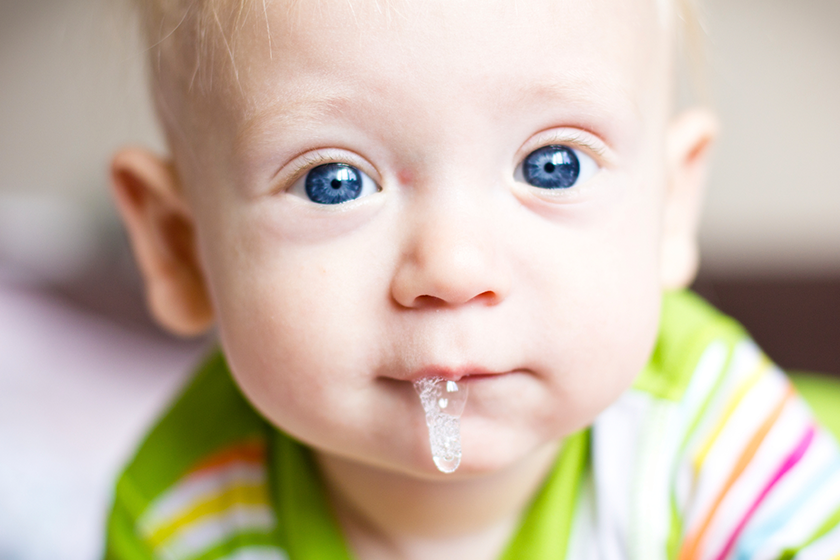
This is because formula flows much faster from a bottle than human milk does from the breast. This is because a muscle called the lower esophageal sphincter which keeps food contents where they belong hasnt fully matured yet. Babies have really small stomachs roughly the size of their closed fist. This is because the. Tetra ImagesBrand X PicturesGetty Images The Happy Spitter.

During their first three months about half of all babies experience their stomach contents coming back up into the esophagus a condition known as gastroesophageal reflux infant reflux or infant acid reflux. Another reason is that babies tend to suck down air when they eat. It is due to the action of stomach acid hydrochloric acid and enzymes rennin on the milk. The stomach contents can force the sphincter open and flood back up the esophagus. These medicines also can have side effects.

Too much milk during feedings can cause your baby to spit up or be fussy. When the air comes back up as a burp so does the. GER effects about 40 to 65 of babies ages one to four months and typically resolves around about one year of age. If they spit up a few hours after feeding it will be curdled milk chunky and separated. This is because the.
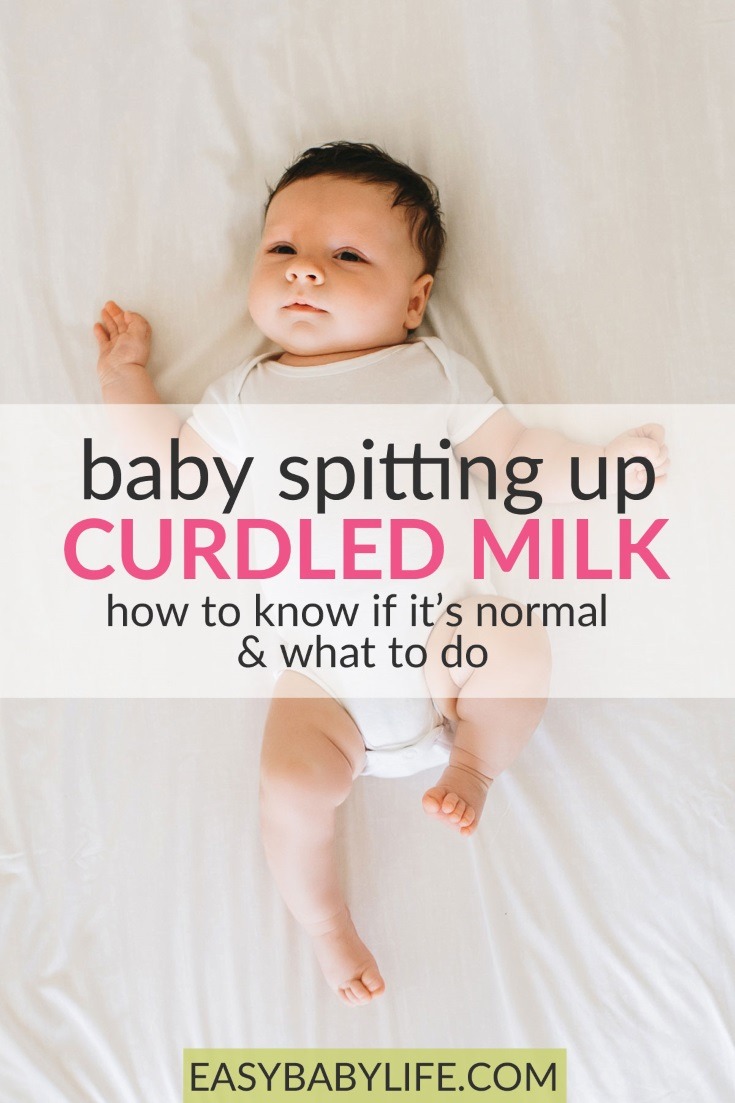
In our experience most spitty babies are formula fed. This is because the. This leads to milk or formula coming up through the mouth or sometimes the nose in the form of spit-up. Doctors may use the phrase happy spitter to describe a baby who spits up but is generally comfortable has no breathing problems and is thriving and growing well. Babies under a year old spit up for some its often and a lot.

Spitting up is common in healthy babies. It happens when milk or food comes back up the babys esophagus. Start with 1 level teaspoon of rice cereal to each ounce of formula. Babies have really small stomachs roughly the size of their closed fist. Spit-up usually happens soon after feeding often.
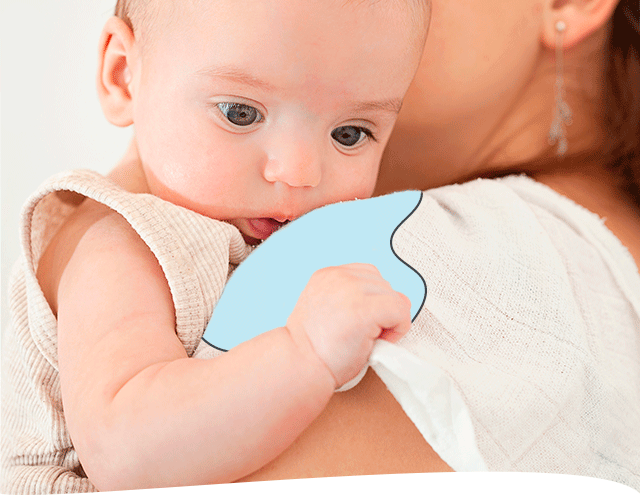
Normally a muscle between the esophagus and the stomach lower esophageal sphincter keeps stomach. This is also known as reflux. Swallowing too much air while eating leads to gas bubbles in the stomach that can trap some food. Too much milk during feedings can cause your baby to spit up or be fussy. Prescription medicines that block acid production are not helpful for normal reflux.

After 3 days it is about the size of a ping-pong ball but still cant hold much. Spitting up is sometimes a nuisance however. Mix it with rice cereal. Usually spit-up is simply part and parcel of their maturing digestive system. During their first three months about half of all babies experience their stomach contents coming back up into the esophagus a condition known as gastroesophageal reflux infant reflux or infant acid reflux.
This is because formula flows much faster from a bottle than human milk does from the breast. Your baby has GER Gastroesophageal Reflux This simply means that the breastmilk or formula that has made its way down to your babys stomach is returning up the esophagus and into and out of the mouth. 1 Until hes about 4 months old your babys tummy can hold only small amounts of milk at a time. Some babies need to be burped after every feeding because they swallow lots of air as they gulp down milk. So as the stomach fills up when the baby feeds sometimes there is an overflow.

Spit-up is not uncommon in babys first year and usually occurs if your baby is fed too much swallowed too much air or it can sometimes occur with burps Mitzner explains. It is important to differentiate between a baby vomiting and just spitting-up milk. After 3 days it is about the size of a ping-pong ball but still cant hold much. If left untreated dehydration can be life threatening. Some babies need to be burped after every feeding because they swallow lots of air as they gulp down milk.

It is due to the action of stomach acid hydrochloric acid and enzymes rennin on the milk. Its all about tummy size. Prescription medicines that block acid production are not helpful for normal reflux. Too much milk during feedings can cause your baby to spit up or be fussy. It is due to the action of stomach acid hydrochloric acid and enzymes rennin on the milk.

Another reason is that babies tend to suck down air when they eat. During their first three months about half of all babies experience their stomach contents coming back up into the esophagus a condition known as gastroesophageal reflux infant reflux or infant acid reflux. Mix it with rice cereal. Doctors may use the phrase happy spitter to describe a baby who spits up but is generally comfortable has no breathing problems and is thriving and growing well. These medicines also can have side effects.

Its normal for babies to spit up both breast milk and formula. Mix it with rice cereal. About half of all babies do spit up within their first three months. Another reason is that babies tend to suck down air when they eat. These medicines also can have side effects.

Some babies need to be burped after every feeding because they swallow lots of air as they gulp down milk. Spit-up usually happens soon after feeding often. Babies spit up all the time because of their undeveloped digestive system. Its normal for babies to spit up both breast milk and formula. In our experience most spitty babies are formula fed.

At birth your babys tummy is about the size of a small marble. At birth your babys tummy is about the size of a small marble. While frequent burping is associated with a reduction in spitting up the process of burping your baby can also trigger spitting up as a bit of formula or breast milk may come up. Infants spit up after feedings sometimes every feeding and often bring up some milk when they burp. This leads to milk or formula coming up through the mouth or sometimes the nose in the form of spit-up.

It is due to the action of stomach acid hydrochloric acid and enzymes rennin on the milk. Prescription medicines that block acid production are not helpful for normal reflux. These medicines also can have side effects. During their first three months about half of all babies experience their stomach contents coming back up into the esophagus a condition known as gastroesophageal reflux infant reflux or infant acid reflux. If your baby still spits up large amounts try thickening the formula.

If they spit up a few hours after feeding it will be curdled milk chunky and separated. Doctors may use the phrase happy spitter to describe a baby who spits up but is generally comfortable has no breathing problems and is thriving and growing well. 1 Until hes about 4 months old your babys tummy can hold only small amounts of milk at a time. At birth your babys tummy is about the size of a small marble. It stains all sorts of fabrics and simply makes quite a mess.

Your baby has GER Gastroesophageal Reflux This simply means that the breastmilk or formula that has made its way down to your babys stomach is returning up the esophagus and into and out of the mouth. Its normal for babies to spit up breast milk or formula occasionally. Its a lot easier to overeat when the baby doesnt have to work to get the milk. So as the stomach fills up when the baby feeds sometimes there is an overflow. Babies have really small stomachs roughly the size of their closed fist.
This site is an open community for users to do submittion their favorite wallpapers on the internet, all images or pictures in this website are for personal wallpaper use only, it is stricly prohibited to use this wallpaper for commercial purposes, if you are the author and find this image is shared without your permission, please kindly raise a DMCA report to Us.
If you find this site adventageous, please support us by sharing this posts to your own social media accounts like Facebook, Instagram and so on or you can also save this blog page with the title why does my baby spit up so much formula by using Ctrl + D for devices a laptop with a Windows operating system or Command + D for laptops with an Apple operating system. If you use a smartphone, you can also use the drawer menu of the browser you are using. Whether it’s a Windows, Mac, iOS or Android operating system, you will still be able to bookmark this website.


